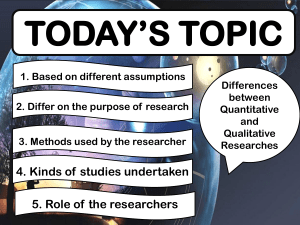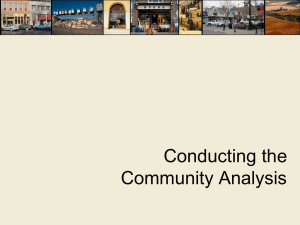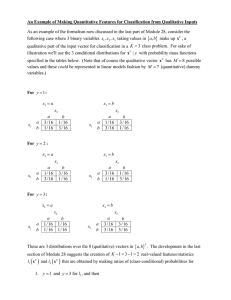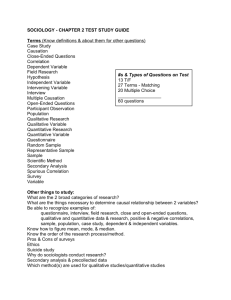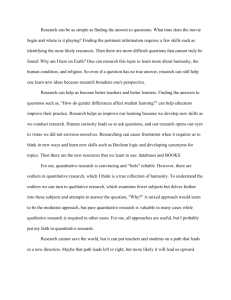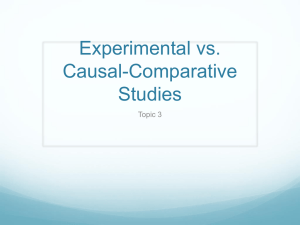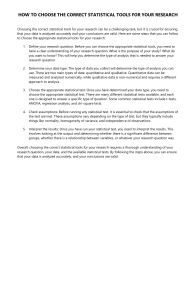Scientific Process & Research Methods: Quantitative vs. Qualitative
advertisement
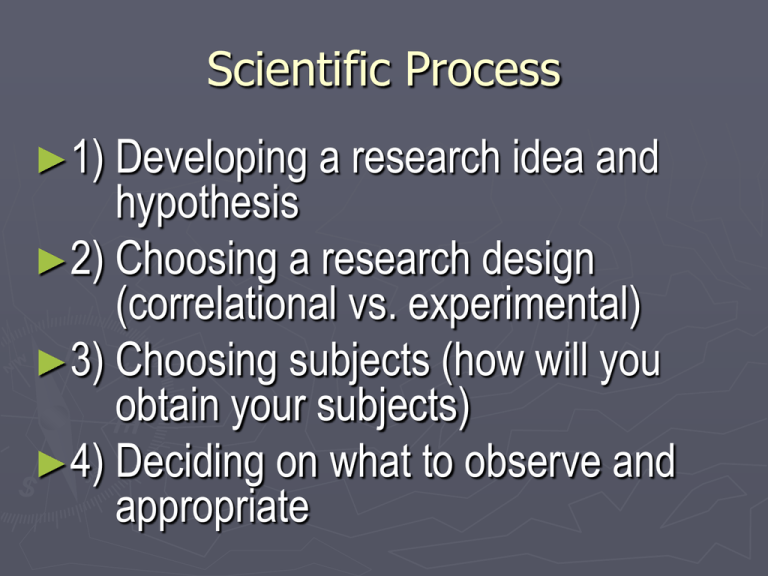
Scientific Process ►1) Developing a research idea and hypothesis ►2) Choosing a research design (correlational vs. experimental) ►3) Choosing subjects (how will you obtain your subjects) ►4) Deciding on what to observe and appropriate measures (once you have determined what behavior(s) you will observe. ►5) Conducting your study ►6) Analyzing your results (summary of your results and interpretation) ►7) Reporting your results (prepare a manuscript of your research). Quantitative vs. Qualitative Research Qualitative Quantitative The aim of qualitative analysis is a complete detailed description. In quantitative research we classify features, count them, and construct statistical models in an attempt to explain what is observed. The design emerges as the study unfolds All aspects of the study are carefully designed before data is collected. Researcher is the data gathering instrument. Researcher uses tools (questionnaires or equipment) to collect data. Data is in the form of words (interviews), pictures (video), or objects (artifacts). Data is in the form of numbers and statistics. Qualitative data is more rich, time consuming, and less able to be generalized. Quantitative data is more efficient, able to test hypotheses, but may miss contextual data.
